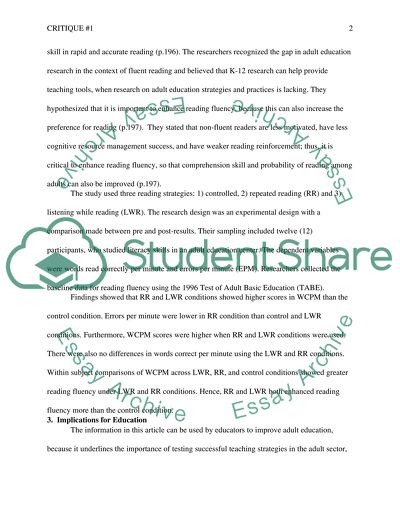Cite this document
(“Critique One Empirical Article Relating to Adult Education”, n.d.)
Retrieved from https://studentshare.org/education/1431167-critique-one-empirical-article-relating-to-adult
Retrieved from https://studentshare.org/education/1431167-critique-one-empirical-article-relating-to-adult
(Critique One Empirical Article Relating to Adult Education)
https://studentshare.org/education/1431167-critique-one-empirical-article-relating-to-adult.
https://studentshare.org/education/1431167-critique-one-empirical-article-relating-to-adult.
“Critique One Empirical Article Relating to Adult Education”, n.d. https://studentshare.org/education/1431167-critique-one-empirical-article-relating-to-adult.


